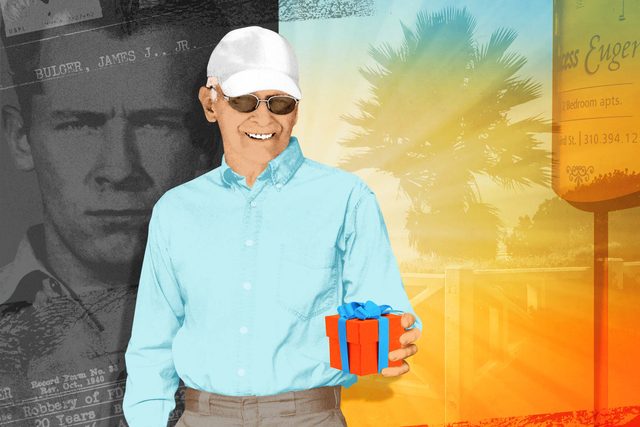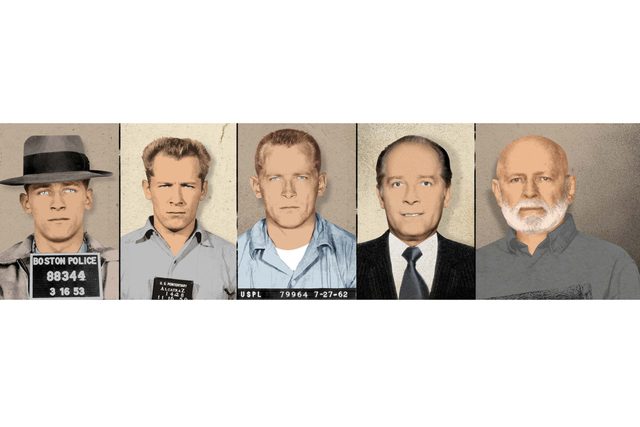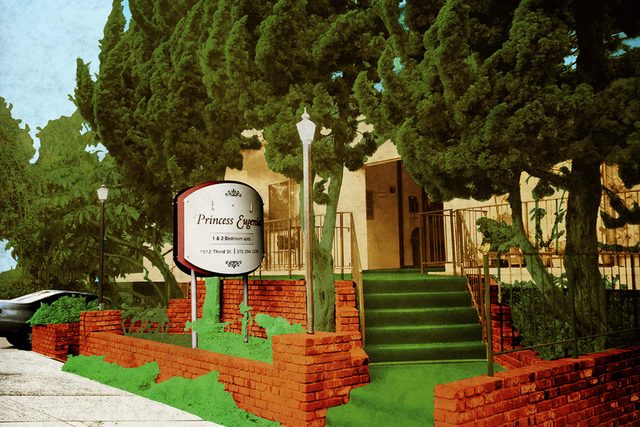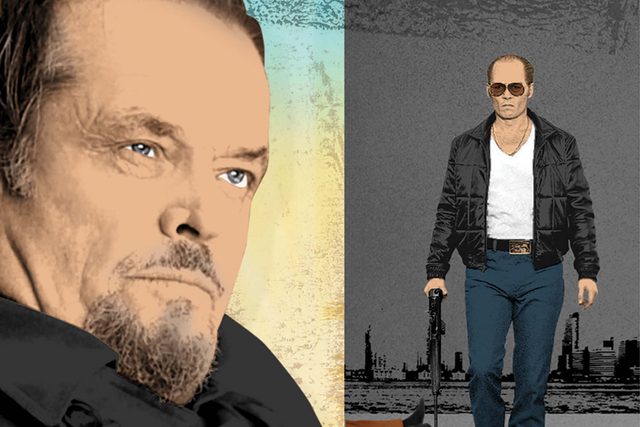“I Helped the FBI Arrest Whitey Bulger, the Most Wanted Man in the Country.”
Updated: Feb. 07, 2023
He gave me gifts and liked to chat. He said his name was Charlie. But when the FBI showed up and told me that my elderly neighbor was actually a notorious killer, I joined the plot to capture him.

I managed a hotel in Santa Monica for about seven years, as well as the apartment building where I lived, which was across the street. Super-easy commute. It’s particularly great when you live in LA.
You meet a lot of interesting people when you manage a building. For example, there was a retired couple who lived in the unit next to mine—the Gaskos. The first time I met the husband, I was in my apartment playing guitar and trying to write a song.
There’s a knock on the door, and I open it to find a man in his seventies holding a black case. He tells me that he heard me playing music, and he liked it, which was good, and he thought I could use this black Stetson cowboy hat.
Really nice gesture. I thank him, and he says his name is Charlie.
So fast-forward four years, and I’m taking a nap on my couch. I’d been working for two weeks straight, no days off, on call every night. But this particular Wednesday, I was taking off work early and I was going to see this band, My Morning Jacket, in Hollywood. I was meeting a friend. All planned out.
At 2 p.m. the phone rings, and it’s my coworker calling from the office—with the FBI.
Before I know it, I’m on the phone with an FBI agent, and he says, “I need to talk to you about a tenant in your apartment building.”
I’m on my couch, so I say, “Can we do this tomorrow?”
He says no. “Where are you? Come here now.”
So I get to my office, and I take a seat, and there’s a large man wearing a dark T-shirt and jeans. He closes the door and throws a manila folder down on the desk. He opens it and points to a sheet of paper. Across the top is Wanted, and underneath is a photo of a man and a woman, with the names Catherine Greig and James J. “Whitey” Bulger.
 The officer asks if these people live in the apartment next to mine. And at first glance, I know the woman is my neighbor, Carol Gasko. Yes, I know these guys. These are my neighbors.
The officer asks if these people live in the apartment next to mine. And at first glance, I know the woman is my neighbor, Carol Gasko. Yes, I know these guys. These are my neighbors.
And while I’ve never heard the name Catherine Greig, the name Whitey Bulger is very familiar. I had heard it many times when I was at Boston University. But I didn’t really know anything about him. He was a Jimmy Hoffa–type guy to me, like, “Oh, this guy’s missing. He’s never gonna be found.” It was almost like a joke.
So I’m standing there, and the FBI agent says, “What do you think?”
I say, “What does my face tell you?”
He says, “I need percentages.”
I say, “Ninety-nine point five, a hundred percent.”
So he gets on his cell phone, and while this is happening, it feels like I’m in a movie after an explosion where the sound just disappears and you’re trying to process something that you’re not familiar with. You don’t know what’s going on, and you don’t know what’s about to happen.
This is an old man who bought me a bike light one time because he was worried about me riding my bike at night without one. And now I’m discovering he’s one of the most notorious criminals in America.
Another agent, this one in a Hawaiian shirt, quickly appears. The agent in the dark T-shirt says, “We need the spare keys to his apartment. I don’t want to have to bust the door down.”
I say, “OK, here are the keys.”
The agent in the Hawaiian shirt leaves, and then the other agent says, “Look, this guy’s pretty high on the Most Wanted list. We could use your help apprehending him.”
My first response is, “I just gave you the keys to his apartment and told you he lives there. So I’m not really sure what else I can do.”
He says, “Well, we can’t just go to his apartment. We have to make sure he’s in there. If it’s just her, it doesn’t really work for us. So why don’t you go knock on the door and see if he’s there?”
In the previous months, Carol had been telling people in the building, “Charlie has dementia; he has heart problems.” They’d put notes on their door during the day that said, “Don’t knock on the door.” I knew from talking to him over the years that he slept during the day.
I explain this to the agent, and without skipping a beat, he says, “Well, what are you doing tonight?”
I say, “I’m going to a concert.”
He says, “You might want to cancel those plans.”
So I call my buddy and tell him, “Look, I don’t think I’m going to make the show tonight, and I can’t tell you why.”
As the original shock is dissipating, I realize I’m going to be with these guys until they have Charlie in cuffs. Then things really kick in. One agent places himself at a window that has a good view of the Gaskos’ balcony across the street. The other agent wants to go over to my apartment. I tell him to go through an alley and some side streets so he doesn’t walk in front of the apartment building in clear view of Charlie and Carol. I walk through the front entrance and let him in from the back.
The FBI agent says, “They just closed their blinds. Did you tip ’em off?”
“I’ve been with you the whole time. No, of course not.”

We get to my apartment, and I draw him a floor plan of the Gaskos’ place. He’s throwing ideas around about how to get this guy out of his apartment.
My living room wall shares a wall with Charlie’s bedroom, so I’m like, “Uh, you know this guy can hear everything we’re saying? Like, he’s repeated conversations I’ve had at night with my friends, asking me why we don’t curse or fight as much as he and his friends did in his younger days.”
We go into my bedroom, and he comes up with an idea. We’re going to break into his storage locker in the garage. We go down to the garage, and the FBI agent goes to get his car; he has some bolt cutters in there.
I’m suddenly pumped up. I’m involved in something. It’s like a movie. I’m having fun, almost, at this point. The adrenaline is helping me forget about my relationship with these people over the years. I mean, this is the same man who bought me a Christmas present every year for the four years I’d lived there.
Once the lock is broken, we go back to my apartment, and the agent’s telling me, “OK, this is what’s gonna happen. I’m gonna go down, we’re gonna get everything set, I’m gonna call you, and you knock on his door and bring him down.”
And I’m like, “No. I’m going to go across to my office to call him, and I’m going to tell him to meet me there. Then you guys take care of your business.”
I’m in my office, and I’m thinking about this guy, my neighbor, who looked after an old woman on the first floor. Who one year, when I didn’t write a thank-you note for a Christmas present he gave me, gave me a box of stationery.
I’m thinking, What did this guy actually do?
So I go to Wikipedia, and I’m reading about murders and extortion and gambling.
I get to the bottom, and in one of his last public sightings with one of his Mafia buddies, there’s a quote from him: “When I go down, I’m going out with guns blazing.”
I start to rethink my involvement in the day’s events.
Conveniently, my phone rings, and it’s the FBI, and they say, “Make the call.”
I start to waver: “Look, man, I just read something about this guy … and I don’t know about this.”
He says, “No, no, no—he’ll never know. He’ll never know.” Which is obviously not true. But I am this close to getting to my concert, so I say, “All right, I’ll make the call.”
I call the Gaskos, and there is no answer. I am relieved. I am so happy that they didn’t answer the phone. I call the agent back, and I say, “Hey, man, sorry. They didn’t answer. Going to have to do something else.”
He says, “Are you sure you don’t want to knock on the door?”
And I’m like, “Look, man, curtains closed, guns blazing. What if he comes to the door with a gun?”
He says, “Just be like, ‘Hey, man, what’s going on?’”
I’m thinking to myself, Uh, he will shoot me before I finish that one statement.
I tell him I’m not going to do that. But while this is going on, Carol calls back. And so I get on the phone and I explain to her that the storage unit’s been broken into. Either I can call the police or Charlie can meet me in the garage and we’ll look at it.
So she discusses this with him, and she says, “He’ll be down in five minutes.”
“All right, great.” I hang up and call the FBI. “He’s on his way. Do your thing.”
Then I walk outside, and Carol walks out on her balcony, which is directly across the street. She looks at me, and then she quickly looks down to the garage, and then she looks back at me. I don’t know if she knows, but she looks worried.
She walks back in, and then I get a call from the FBI, and they say, “We got him. Go to your concert.”
So I go back across the street to my apartment to change clothes, and the adrenaline—the rush—just hits me. I go downstairs, and as soon as I open the door to the garage, it’s like a slow-motion shot—there are two SUVs and a half-dozen FBI agents. And my neighbor, Charlie Gasko, is standing there in cuffs, surrounded by agents, laughing and telling stories.
He almost looks relieved. I see Carol standing a few feet away, also in cuffs. And the magnitude of everything that has happened starts to sink in.
She looks at me, and she says, “Hi, Josh,” and I can’t speak.
I just meekly wave, and walk to my car, and get on the highway, and call my brother, and say, “You’ll never guess what happened to me today.”
“What?”
“I helped the FBI arrest the most wanted man in the country.”
So a couple of months later, my family’s a little worried about me, and my friends are taking bets on how much longer I have to live. I get home one day, and there’s a letter in the mail from the Plymouth Correctional Facility. I open it, and I see the same familiar cursive writing and the same “shoot the breeze” dialogue tone that I knew from four years living next to Charlie Gasko.
But in this letter, he’s reintroducing himself as Jim Bulger.
And so I write him back, and I say, “Look, you know I had something to do with the day of the arrest, and my family’s a little worried. So, uh, you know, just a little note of ‘everything’s good’ would be nice.”
He writes back and says, “Look, they had me with or without your help. No worries.”
So that made my mom feel better, definitely.
New neighbors eventually moved in, and they seemed like nice people.
But what do I know?
***
Note: After his capture, Bulger was tried in Boston and convicted on charges related to 11 murders and other crimes. He was sentenced to two life terms and died in a federal prison in West Virginia prison on October 30, 2018.
Buy a copy of All These Wonders: True Stories About Facing the Unknown.